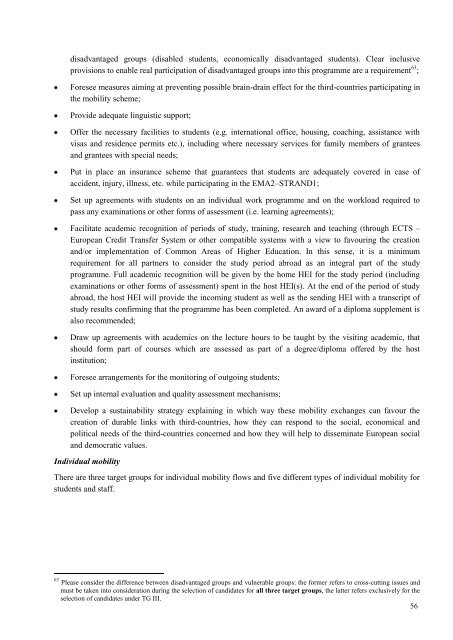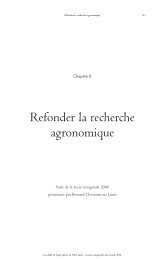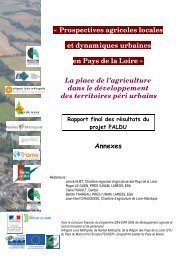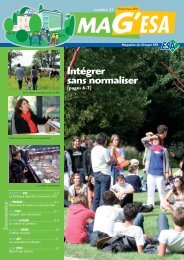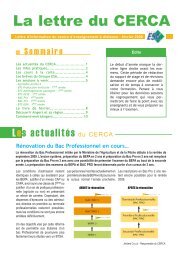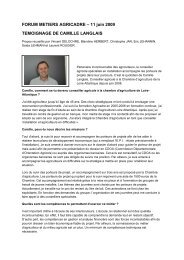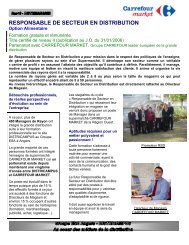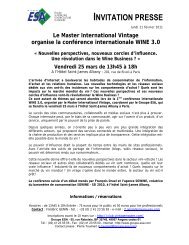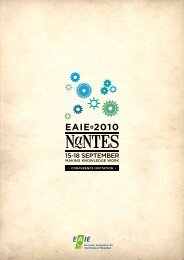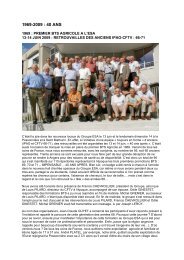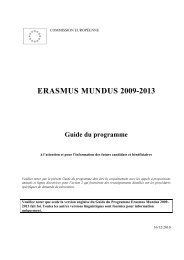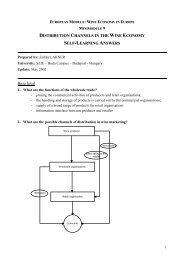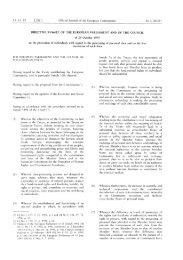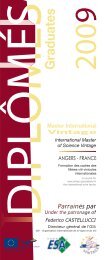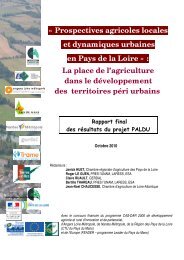ERASMUS Mundus Program Guide - EACEA - Europa
ERASMUS Mundus Program Guide - EACEA - Europa
ERASMUS Mundus Program Guide - EACEA - Europa
You also want an ePaper? Increase the reach of your titles
YUMPU automatically turns print PDFs into web optimized ePapers that Google loves.
disadvantaged groups (disabled students, economically disadvantaged students). Clear inclusive<br />
provisions to enable real participation of disadvantaged groups into this programme are a requirement 63 ;<br />
Foresee measures aiming at preventing possible brain-drain effect for the third-countries participating in<br />
the mobility scheme;<br />
Provide adequate linguistic support;<br />
Offer the necessary facilities to students (e.g. international office, housing, coaching, assistance with<br />
visas and residence permits etc.), including where necessary services for family members of grantees<br />
and grantees with special needs;<br />
Put in place an insurance scheme that guarantees that students are adequately covered in case of<br />
accident, injury, illness, etc. while participating in the EMA2–STRAND1;<br />
Set up agreements with students on an individual work programme and on the workload required to<br />
pass any examinations or other forms of assessment (i.e. learning agreements);<br />
Facilitate academic recognition of periods of study, training, research and teaching (through ECTS –<br />
European Credit Transfer System or other compatible systems with a view to favouring the creation<br />
and/or implementation of Common Areas of Higher Education. In this sense, it is a minimum<br />
requirement for all partners to consider the study period abroad as an integral part of the study<br />
programme. Full academic recognition will be given by the home HEI for the study period (including<br />
examinations or other forms of assessment) spent in the host HEI(s). At the end of the period of study<br />
abroad, the host HEI will provide the incoming student as well as the sending HEI with a transcript of<br />
study results confirming that the programme has been completed. An award of a diploma supplement is<br />
also recommended;<br />
Draw up agreements with academics on the lecture hours to be taught by the visiting academic, that<br />
should form part of courses which are assessed as part of a degree/diploma offered by the host<br />
institution;<br />
Foresee arrangements for the monitoring of outgoing students;<br />
Set up internal evaluation and quality assessment mechanisms;<br />
Develop a sustainability strategy explaining in which way these mobility exchanges can favour the<br />
creation of durable links with third-countries, how they can respond to the social, economical and<br />
political needs of the third-countries concerned and how they will help to disseminate European social<br />
and democratic values.<br />
Individual mobility<br />
There are three target groups for individual mobility flows and five different types of individual mobility for<br />
students and staff.<br />
63 Please consider the difference between disadvantaged groups and vulnerable groups: the former refers to cross-cutting issues and<br />
must be taken into consideration during the selection of candidates for all three target groups, the latter refers exclusively for the<br />
selection of candidates under TG III.<br />
56


